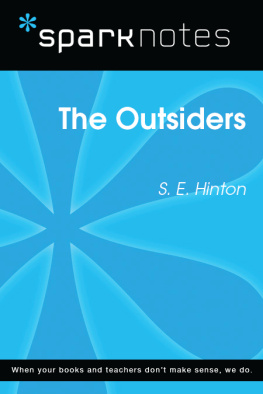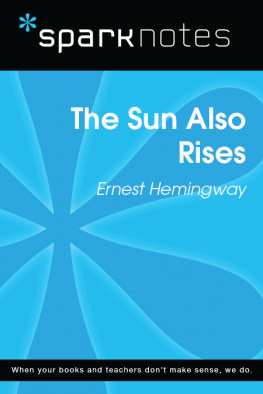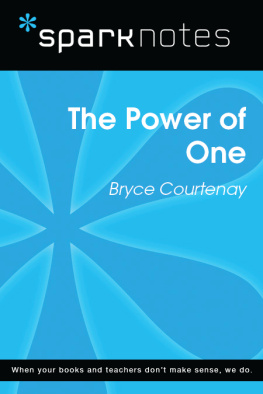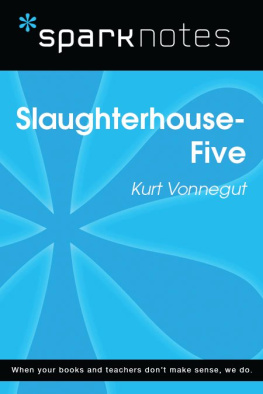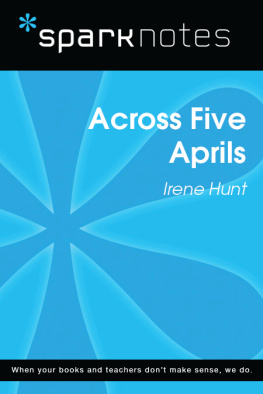A Yellow Raft in Blue Water
Michael Dorris
2003, 2007 by Spark Publishing
This Spark Publishing edition 2014 by SparkNotes LLC, an Affiliate of Barnes & Noble
All rights reserved. No part of this publication may be reproduced, stored in a retrieval system, or transmitted in any form or by any means (including electronic, mechanical, photocopying, recording, or otherwise) without prior written permission from the publisher.
Sparknotes is a registered trademark of SparkNotes LLC
Spark Publishing
A Division of Barnes & Noble
120 Fifth Avenue
New York, NY 10011
www.sparknotes.com /
ISBN-13: 978-1-4114-7846-6
Please submit changes or report errors to www.sparknotes.com/.
10 9 8 7 6 5 4 3 2 1
Context
M ichael Dorris was born in Louisville, Kentucky, in 1945 . His heritage was mixed, as he was descended from European ancestry and from the Native American Modoc Tribe of California. Dorris spent his childhood in Kentucky but made frequent visits to reservations in the Pacific Northwest.
Later in life Dorris noted that, as a child, he never encountered Native American literary characters with whom he could identify. So after graduating cum laude from Georgetown University and earning a masters degree at Yale University, Dorris began writing, hoping to create such characters himself. He was a prolific author, publishing fourteen books and over one hundred articles between 1977 and his death in 1997 . A Yellow Raft in Blue Water, published in 1987 , was Dorriss first novel. During his writing career, Dorris remained heavily involved in academia, starting the Native American Studies program at Dartmouth College, where he taught intermittently for twenty-five years. At Dartmouth, Dorris also met his future wife and literary partner, the novelist Louise Erdrich. She too is of Native American descent, a member of the Turtle Mountain Chippewa Tribe of the Midwest.
Dorris and Erdrich had three children together, who joined the three children whom Dorris had adopted prior to his marriage. Dorriss adopted children, who were born on Native American reservations, all suffered from fetal alcohol syndrome, a variable group of birth defects that can occur in the children of women who consume large quantities of alcohol during pregnancy. One of Dorriss best-known works, The Broken Cord ( 1989 ), is based on the troubles and triumphs he experienced in dealing with fetal alcohol syndrome in the older of his two adopted sons, Abel.
Although the press frequently idealized Dorriss relationship with Erdrich as a literary marriage of the highest sort, the two gradually grew apart and separated. The rest of Dorriss personal life began to splinter as well: in 1991 Abel was killed in a hit-and-run accident, and in 1994 another of his adopted children, Jeffrey, accused both Dorris and Erdrich of abuse and brought a lawsuit against them. Dorris and Erdrich also began to bump heads over custody of their natural children. With his personal life already under considerable scrutiny, Dorris faced increased pressure as accusations that he had sexually abused a child leaked to the press in December of 1996 . Formal charges were never brought against Dorris, but he began to suffer from severe depression from the thought that they might be. Apparently fearful of the prospect of a feeding frenzy by law enforcement officials and the media, Dorris killed himself in a motel room in Concord, New Hampshire, on April , 1997 .
Although his tumultuous personal life and tragically short career have at times threatened to overshadow his literary accomplishments, critics acknowledge Dorris as a highly original voice in modern Native American literature, the peer of other prominent writers such as N. Scott Momaday, Sherman Alexie, and Leslie Marmon Silko.
Plot Overview
T he novel is divided into three sections narrated by three different Native American women: Rayona, Christine, and Ida. Rayonas narrative begins at the hospital, where she is playing cards with her mother, Christine, who drinks heavily and is frequently hospitalized. Rayonas father, Elgin, arrives and argues with Christine. Rayona leaves for the parking lot and finds Christine trying to break into their car. Christine says she is going to crash the car so Rayona can collect the life insurance payment. Rayona forces her way into the car and she and her mother drive off. Christine decides to leave their home in Seattle and return to the reservation in Montana where she grew up. Christine and Rayona spend the night packing and leave the next day.
The car breaks down a mile away from Christines mothers house, and Christine and Rayona walk the rest of the way. Christines mother, Ida (whom they both call Aunt Ida), is not glad to see Christine. Christine runs off, leaving Rayona with Ida. Rayona does not enjoy the reservation. Aunt Ida is cold and distant, and the other children make fun of Rayonas dark skin. The only place Rayona finds attention is at the local mission, where a priest named Father Tom persuades her to join the God Squad, a religious youth group.
Father Tom invites Rayona to a religious jamboree. They arrive early, so they stop for a while at nearby Bearpaw Lake. The two go swimming, and Father Tom suddenly makes suggestive advances toward Rayona. Embarrassed, he decides they should just return to the reservation. Rayona wants to go back to Seattle, so Father Tom arranges a train ticket for her. Rayona intentionally misses the train and sleeps by the tracks. The next day Rayona meets a gas station attendant named Sky, whose wife, Evelyn, sets Rayona up with a custodial job at Bearpaw Lake State Park. Rayona stays with Sky and Evelyn for the whole summer and makes up a family history, telling Sky and Evelyn that her parents are away for the summer. When Evelyn discovers Rayona is lying, Rayona confesses her real story.
Evelyn wants to take Rayona back to the reservation, but Rayona is confident that they will find her mother at a nearby rodeo. Rayona runs into Foxy Cree, one of the kids from the reservation. Foxy is supposed to ride in the rodeo but is too drunk to do so, so he convinces Rayona to ride in his place. Rayona performs valiantly in the rodeo and wins a prize for her persistence. Dayton, who owns the horse that Rayona rides and who is also Christines on-and-off boyfriend, takes Rayona back to his house. Christine is there, and she and Rayona immediately get in a fight. The next morning Christine and Rayona have a conversation out in the yard. Christine tells the story of how she had lost her faith when the world had not ended on New Years Day of 1960 as her religious teacher had predicted it would.
The narrative voice switches to Christine, whose story begins soon after the night when the predicted end of the world did not occur. As kids, Christine and her brother, Lee, are constant companions. Christine is very daring until she loses her nerve one day while trying to cross a natural bridge on a dare. A boy named Dayton moves to the reservation and begins following Lee everywhere. Christine decides she likes Dayton, and, thinking he is interested in her, tries to seduce him. Dayton rejects Christine, however, saying he thinks of her as a sister.
After high school, Christine works for the tribal council and goes out with many boys. She has a fight with Ida and goes to live with Idas sister, Pauline. When the Vietnam War begins, Lee tells Christine that he plans to dodge the draft but Christine tries to persuade him otherwise. She knows that if Lee dodges the draft it will hurt both her reputation and his prospects for a political career as a leader of the reservation. Dayton sees Christines point and persuades Lee to enlist.







